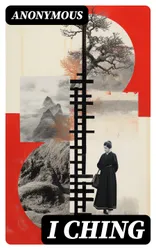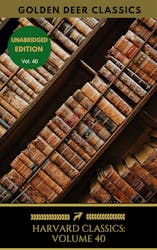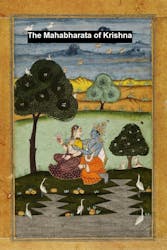The Book of Ayub, revered in Judeo-Christian traditions as Job, stands as a profound exploration of suffering, faith, and the human condition. Written in a poetic literary style, this ancient text employs rich imagery and dialogue to convey the trials of its protagonist, Ayub, whose piety is put to the ultimate test through enduring afflictions and existential questions. The book's setting within the wisdom literature of the Hebrew Bible situates it amid broader themes of divine justice and human righteousness, as it intricately weaves philosophical discourses with poignant emotional depth. The author of this ancient work remains anonymous, yet the narrative reflects a deep engagement with the theological and existential dilemmas of its time. Likely composed during the Babylonian Exile, the work resonates with a historical context of suffering and loss, perhaps mirroring the experiences of a community grappling with divine silence in the face of pervasive anguish. This personal and communal suffering informs the book's exploration of faith under duress, evoking both empathy and introspection. I highly recommend The Book of Ayub to readers interested in the exploration of human suffering and resilience. Its timeless themes and deep philosophical inquiries resonate today, inviting reflections on the nature of faith and the complexities of life. This text serves not only as a literary masterpiece but also as a catalyst for profound existential contemplation.
The Book of Ayub, known in the west as Job
Begynd din 14 dages gratis prøveperiode
- Fuld adgang til hundredtusindvis af lydbøger og e-bøger i vores bibliotek
- Opret op til 4 profiler – inkl. børneprofiler
- Læs og lyt offline
- Abonnementer fra 99 kr. pr. måned

The Book of Ayub, known in the west as Job
The Book of Ayub, revered in Judeo-Christian traditions as Job, stands as a profound exploration of suffering, faith, and the human condition. Written in a poetic literary style, this ancient text employs rich imagery and dialogue to convey the trials of its protagonist, Ayub, whose piety is put to the ultimate test through enduring afflictions and existential questions. The book's setting within the wisdom literature of the Hebrew Bible situates it amid broader themes of divine justice and human righteousness, as it intricately weaves philosophical discourses with poignant emotional depth. The author of this ancient work remains anonymous, yet the narrative reflects a deep engagement with the theological and existential dilemmas of its time. Likely composed during the Babylonian Exile, the work resonates with a historical context of suffering and loss, perhaps mirroring the experiences of a community grappling with divine silence in the face of pervasive anguish. This personal and communal suffering informs the book's exploration of faith under duress, evoking both empathy and introspection. I highly recommend The Book of Ayub to readers interested in the exploration of human suffering and resilience. Its timeless themes and deep philosophical inquiries resonate today, inviting reflections on the nature of faith and the complexities of life. This text serves not only as a literary masterpiece but also as a catalyst for profound existential contemplation.

Dirty Cop
Anonymous
audiobook
The Quiet Spy
Anonymous
audiobook
I Ching : The Book of Changes
Anonymous
book
Fetish
Anonymous
audiobook
Mahanirvana Tantra : Tantra of the Great Liberation
Anonymous
book
I Am A Hitman
Anonymous
audiobook
Eternal Teaching of The Bhagavad Gita : The Song Of God
Anonymous
audiobook
Harvard Classics Volume 40 : English Poetry 1: Chaucer To Gray
Geoffrey Chaucer, Golden Deer Classics, Anonymous, Thomas Wyatt, Henry Howard, George Gascoigne, Edward Dyer, John Lyly, Thomas Lodge, George Peele, Robert Southwell, Samuel Daniel, Michael Drayton, Henry Constable, Edmund Spenser, William Habington, Christopher Marlowe, Richard Rowlands, Thomas Nashe, William Shakespeare, Robert Greene, Richard Barnfield, Thomas Campion, Robert Devereux, Henry Wotton, Edward de Vere, Ben Jonson, John Donne, Joshua Sylvester, William Alexander, Richard Corbet, Thomas Heywood, Thomas Dekker, Francis Beaumont, John Fletcher, John Webster, William Drummond, George Wither, William Browne, Robert Herrick, Francis Quarles, George Herbert, Henry Vaughan, Francis Bacon, James Shirley, Thomas Carew, John Suckling, William D'Avenant, Richard Lovelace, Edmund Waller, William Cartwright, James Graham, Richard Crashaw, Thomas Jordan, Abraham Cowley, Alexander Brome, Andrew Marvell, Earl of Rochester, Charles Sedley, John Dryden, Matthew Prior, Isaac Watts, Lady Grisel Baillie, Joseph Addison, Allan Ramsay, John Gay, Henry Carey, Alexander Pope, Ambrose Philips, Colley Cibber, James Thomson, Thomas Gray, George Bubb Dodington
book
Frithjof, the Viking
Anonymous
audiobook
The Mahabharata
Anonymous
book
The Little Red Book: The Original 1946 Edition :
Anonymous
audiobook
Ryhmä Hau - Luolan uumenissa
Anonymous
audiobook